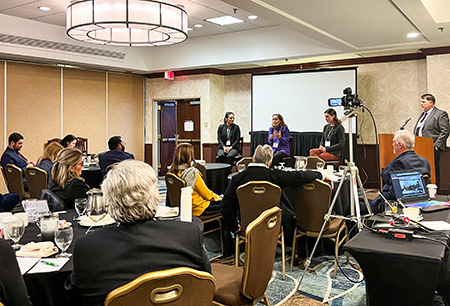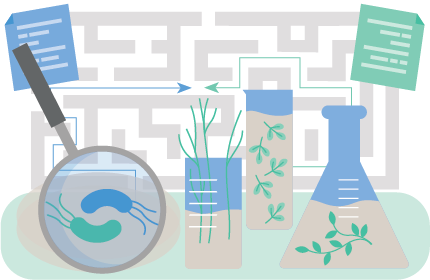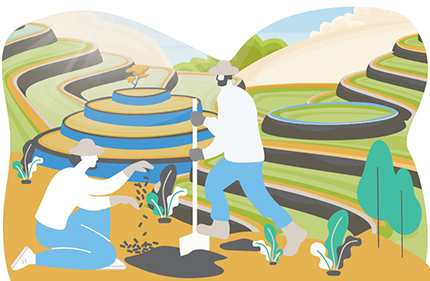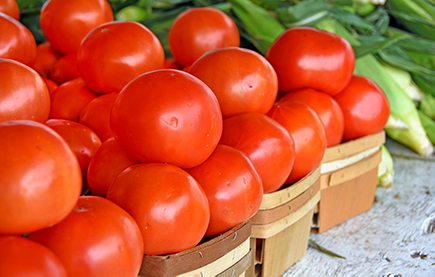The Issue
Biologicals — products derived from living organisms — support integrated crop management to make plants more resilient to biotic and abiotic stresses. Biologicals offer the potential to increase the sustainability of crop production through the use of biofertilizers, biostimulants, biological control agents, and plant inducers.
What We Are Doing
The Agriculture & Food Systems Institute brings together experts from academia, government, non-governmental organizations, industry, and other stakeholder groups to identify future needs and opportunities for biologicals in agriculture and food systems. Our expertise in environmental risk assessment is well applied to help the sector address regulatory considerations for next-generation biologicals.
Why It’s Important
Biologicals can promote plant growth, enhance resistance to pests and disease, and enhance resilience to abiotic stresses, such as increasing water and nitrogen use efficiency. The great value of biologicals is that they can be used in both organic and conventional agriculture, providing a suite of options for farmers across the world.
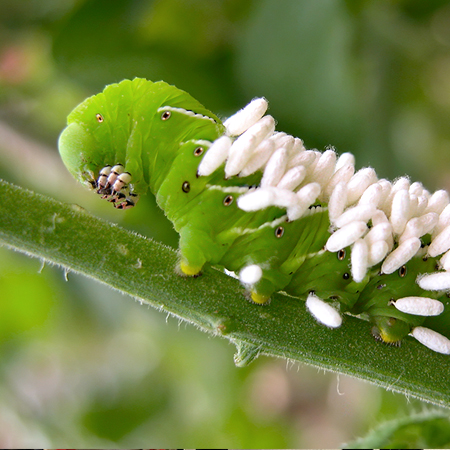
Program Staff

Andrew Roberts, Ph.D.
Our Successes
The term “biologicals” refers to a broad category of products derived from or consisting of living organisms with a range of functionalities, including biofertilizers, plant growth regulators, biostimulants, and biopesticides. While biologicals are not new in agriculture, recent social, economic and technological developments have ignited renewed interest. The biologicals sector has seen an explosion of product start-ups, mergers, and investment from big agricultural companies. This growth has propelled innovation, leading to advances in biological isolates, refined biological compounds, symbiotic organisms, microbial based solutions, bioprocessing, fermentation techniques, and delivery systems.
Biologicals are currently regulated under policies designed for synthetic chemicals with single, easily categorized functions, but their variety and nature can result in overlapping functions. This challenge to protocol development and regulatory pathways can affect the perception, adoption, and competitiveness of these bio-based solutions, as well as create barriers to adoption, with economic and environmental impacts. There is a need for rational agricultural policy design and implementation that supports biologicals innovation while ensuring the potential impacts on growers, producers, consumers, and the environment are properly considered.
Supported by a grant from the United States Department of Agriculture National Institute of Food and Agriculture (USDA NIFA) Agriculture and Food Research Initiative (AFRI) Foundational and Applied Science Program, the Agriculture and Food Systems Institute organized an in-person conference in Washington, D.C. on January 23, 2025 to:
- Better comprehend the emerging biologicals landscape through the examination of recent research and product development.
- Enhance regulatory insight by producing an overview of current regulatory pathways for biological products and identify the potential impacts of these policies.
- Facilitate stakeholder dialogue to identify unintended impacts, definitional challenges, and need for future regulatory design aligned with the potential of biologicals.
To prime attendees, the in-person activity was preceded by an online session at the Dupont Summit on Science, Technology, and Environmental Policy on December 6, 2024. This virtual event was organized in collaboration with the Biotechnology Innovation Organization (BIO) and the Biological Products Industry Alliance (BPIA), with the objective of:
- Fostering a comprehensive understanding of how biological products can be effectively integrated into modern agricultural practices among policymakers, industry experts, producers, and market participants.
- Examining the pathways to regulatory approval and market adoption, with an eye toward ensuring that innovative solutions provided by biologicals can contribute to a sustainable and resilient agricultural future.
To facilitate an exchange of ideas between researchers, product developers, and regulators, pave the way for future regulatory developments, and provide a forum for stakeholders, the subsequent conference on “Understanding the Impacts and Needs in Biologicals Regulation” was divided into three sessions:
- The first session focused on better comprehending the emerging biologicals landscape through an examination of recent research and product development, with industry experts setting the stage and providing case examples.
- The second session was dedicated to exploring the potential of biological innovations, with scientific experts delivering presentations on how biologicals can address climate change challenges, demonstrate and improve efficacy, and contribute to soil health.
- The third session tackled the unique challenge biologicals pose to protocol development and regulatory pathways, as their variety and nature can result in overlapping functions. Starting with an overview of the current status and future outlook for the regulation of biological products, a facilitated panel discussion explored how fit-for-purpose regulation of biologicals might be achieved.
By convening stakeholders in one place and creating a forum for exchanging ideas, the Agriculture and Food Systems Institute hopes to generate a report summarizing identified options and opportunities in collaboration with interested speakers and attendees. This analysis of the conference’s outcomes should culminate in practical recommendations for future actions by researchers, developers, and regulators that will help facilitate a transparent, scientifically sound, and effective regulatory environment for the use of biologicals in agriculture.
-
Project Name:
Understanding the Impacts and Needs in Biologicals Regulation
-
Year:
2025
-
Funding:
United States Department of Agriculture National Institute of Food and Agriculture (USDA NIFA)
Events
-
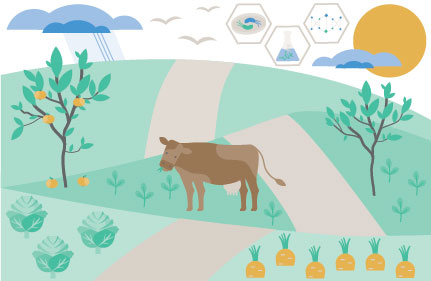 Understanding the Impacts and Needs in Biologicals Regulation
Understanding the Impacts and Needs in Biologicals RegulationJanuary 23, 2025
Washington, D.C., USA
-
 Innovative Crop Management: Biological Inputs for a Sustainable Future
Innovative Crop Management: Biological Inputs for a Sustainable FutureDecember 6, 2024
Washington, D.C., USA
-
 European Biotech Week 2022: Innovative Technologies in the EU Green Transition – Spotlight on Industrial Biotechnology
European Biotech Week 2022: Innovative Technologies in the EU Green Transition – Spotlight on Industrial BiotechnologySeptember 27, 2022
Brussels, Belgium
-
 3rd International Conference on Green Plant Protection Innovation
3rd International Conference on Green Plant Protection InnovationSeptember 24, 2021-September 26, 2021
Shanxi Province, China


